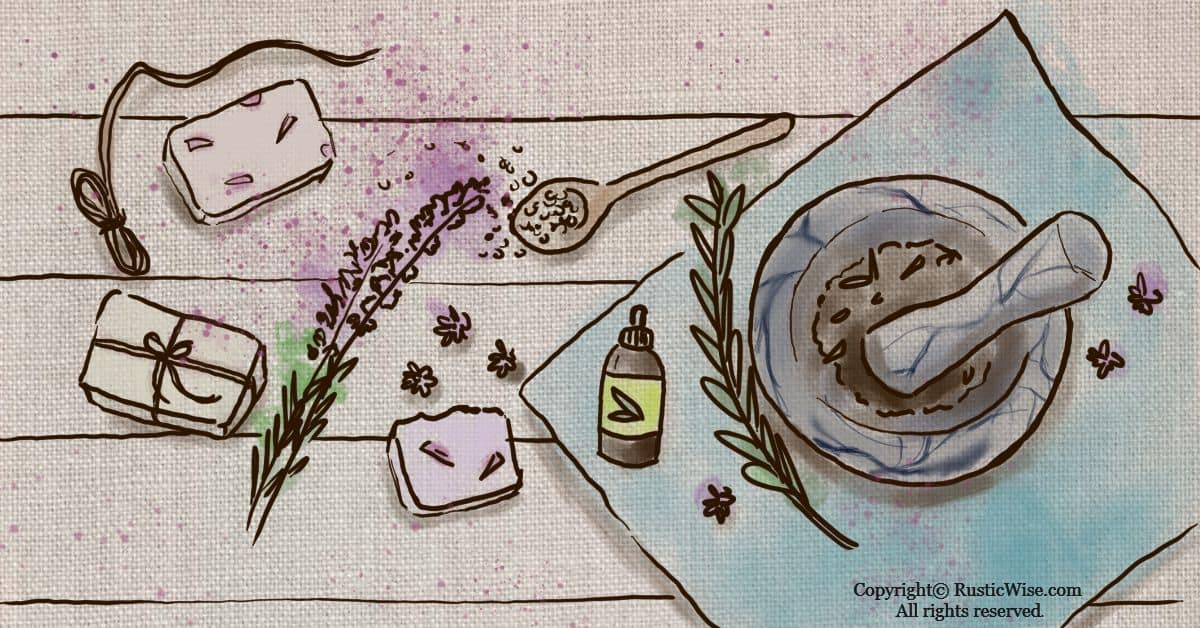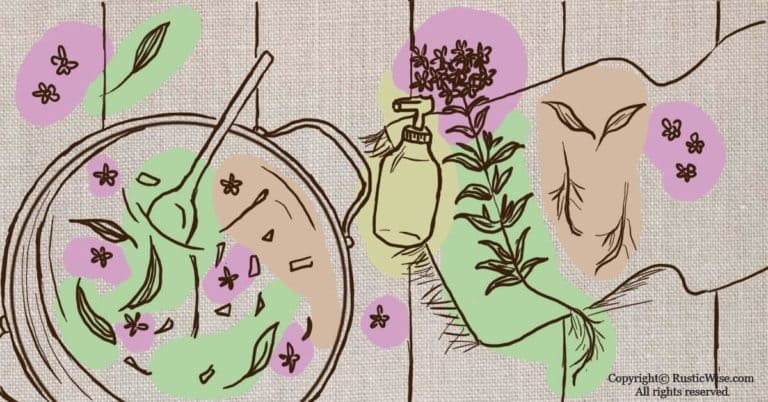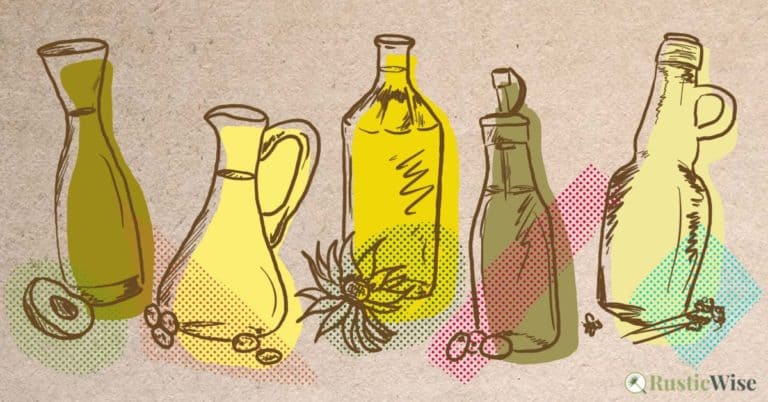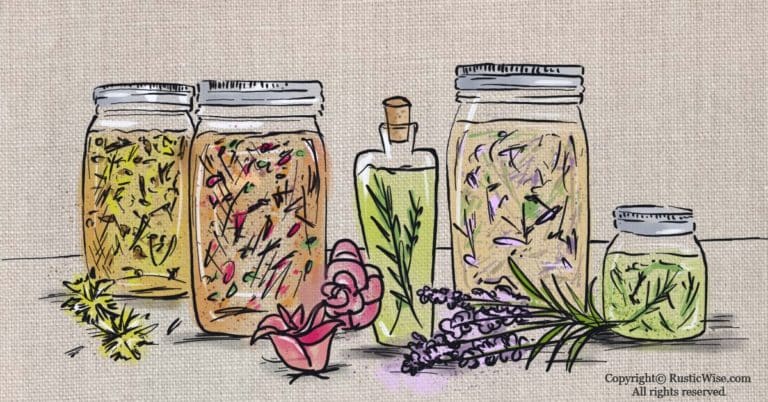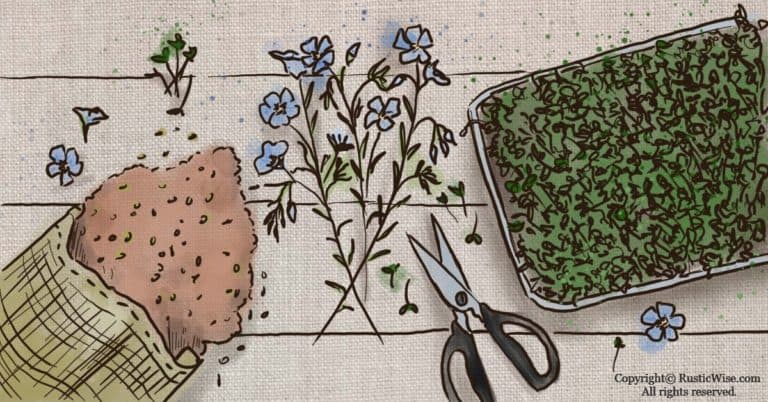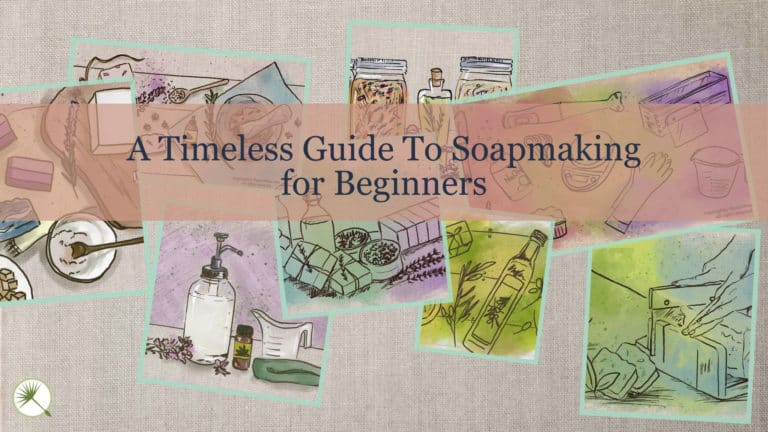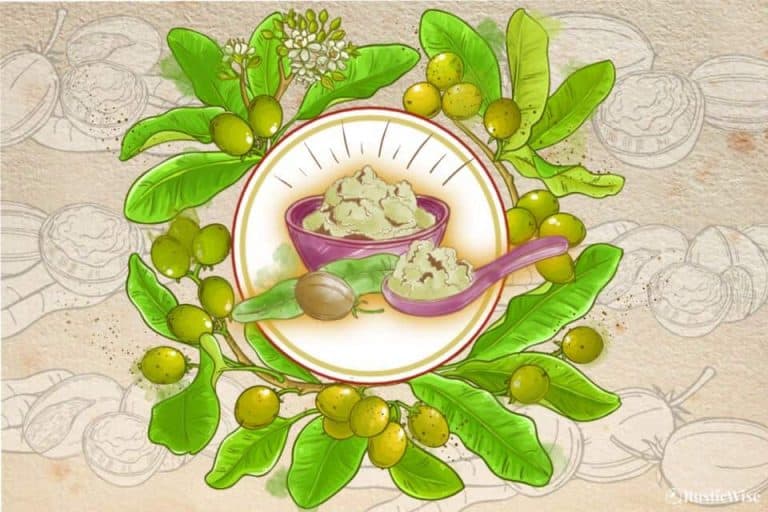Is Homemade Soap Better For Your Skin?
In the world of soap, traditional ways of soapmaking are gaining momentum once again as people seek natural ingredients, and find comfort in all things handmade. Which leads us to the question, is homemade soap better for your skin compared to manufactured soap? Soap purists certainly would argue in favor of homemade soap’s natural ingredients, especially glycerin, which is left intact in homemade bars of soap.
In a nutshell, if you’re looking for a bar of soap that nourishes the skin without a slew of chemicals, you can’t beat handmade soap.
But not all homemade soap is created equal. And not all store-bought soaps are evil.
Let’s take a deeper look at the soapmaking process, the ingredients used (and which to look out for), and the differences between a bar of homemade soap vs. manufactured soap.
Why it’s important to consider the pH of your skin
Did you know that the average adult has a healthy skin pH of 5.7? If you remember from science class, this is considered slightly acidic. This actually serves to fight off harmful microbes that may come in contact with the skin.
The pH scale runs from 1 to 14, with 7 being neutral. Numbers below 7 are considered acidic, while higher numbers are basic, or alkaline.
So, what does this have to do with soap?
To maintain your skin’s natural healthy pH level, we have to take care of it. Many factors affect your skin’s pH level including:
- Air humidity levels
- Air pollution
- Soaps and detergents used
- Cosmetics
- Sun exposure
Many store-bought soaps use synthetic petroleum-based detergents, chemical-laden preservatives and coloring, as well as synthetic fragrances. When we use soaps and detergents with harmful additives, it strips the skin of natural oils. We end up with dryer skin.
If you consider how many times you wash your hands a day, for example, it becomes clear that we need to take a closer look at the ingredients in soap—and whether we should be slathering these ingredients all over our face, hands, and body.
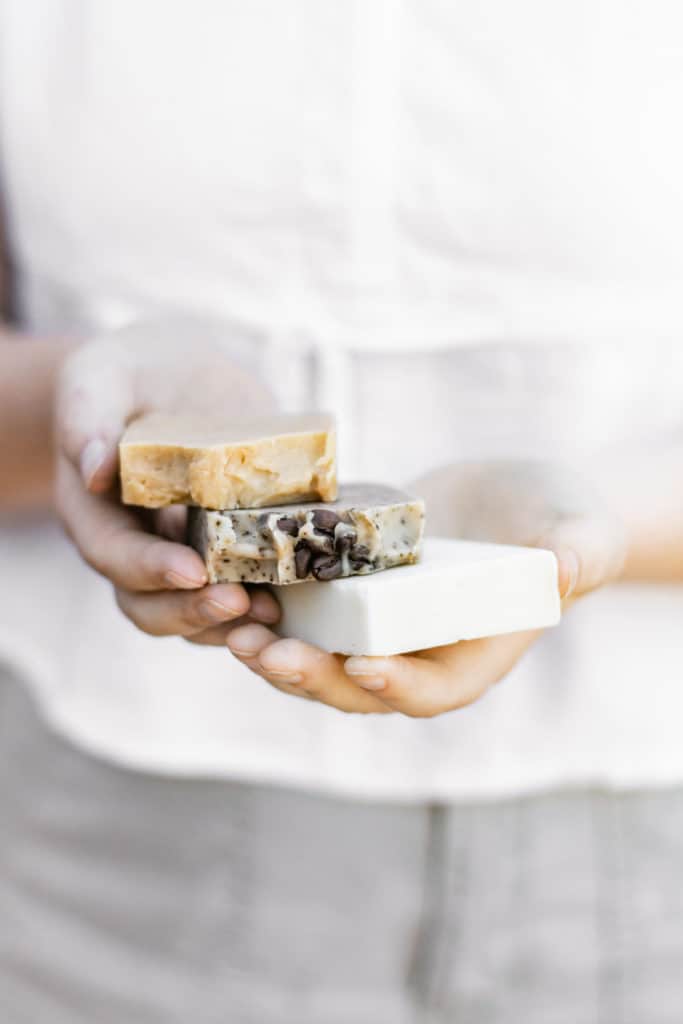
Not all soaps (homemade or store-bought) are created equal
Now, we’re not trying to demonize manufactured soap. Some store-bought soap have fewer synthetic ingredients than others, and may work perfectly fine for you.
On the other hand, not every bar of handmade soap is great for you either. A handmade bar of soap may have synthetic coloring, or synthetic fragrances added during the soapmaking process.
A homemade bar of soap is only as “natural” as the ingredients put into it.
It’s important to read the ingredients label, or ask the soapmaker what ingredients are used, and the process used (more on that below).
And be wary of store-bought soaps labelled as “natural.” According to the FDA, “The laws and regulations that FDA enforces do not have definitions for “natural” or “organic.” The same requirements apply to your product no matter whether the ingredients are plant, animal, mineral, or synthetic.”
This means that companies are free to slap on the label “natural” even if their products still contain synthetic ingredients. The FDA has not defined the term natural and does not monitor its use.
A quick overview of homemade soapmaking
People have made their own soaps for thousands of years. Homesteaders made their own soft soaps from animal fat mixed with a slurry of hardwood ashes and water (homemade lye).
Today, the process of making soap from scratch remains mostly the same. You need lye, water, and oils/fats. When these ingredients are properly mixed together, it kick-starts a chemical process known as saponification.
Yes, lye (commonly sodium hydroxide, or caustic soda) is harmful as a chemical by itself. Yes, it can be dangerous using lye at home if you’re not careful. But that homemade bar of soap (once properly cured), is perfectly safe to use. The harmful properties of lye become neutralized.
One great byproduct of homemade soap is glycerin. Glycerin (sometimes referred to as glycerol) is a natural substance created (and left intact) when making soap using traditional methods. It’s an emollient and acts as a moisturizing agent that creates a natural protective barrier on the skin.
Manufactured soaps remove the glycerin to make other products (such as hand lotions). They replace glycerin with synthetic materials that unfortunately fall short of the natural moisturizing properties of glycerin. While many store-bought soaps do a fine job of cleansing and lathering, the added chemicals tend to leave skin dry, and wreak havoc on our skin’s pH levels.
Do you or a loved one have eczema, or sensitive, dry skin? Consider switching to natural homemade soap.
The three main ways of making traditional soap
While we won’t be getting into the nitty-gritty details of traditional soapmaking, the following provides a simplified overview:
- Cold process: The most commonly used (and time-consuming) process favored by home soapmakers is cold process. To make real soap, you start off with the basic ingredients: lye, water, and oil/fat. This mixture is poured into molds, cut, and allowed to “cure” which can take anywhere from 4-8 weeks.
- Hot process: Similar to cold process, the hot process involves the application of heat to speed up the process. Soap is ready in days, rather than weeks.
- Melt-and-pour: Many beginner soapmaking kits are for melt-and-pour process. My daughter received a soap kit as a gift which is great for kids as we didn’t have to handle lye directly. Everything comes premixed—you just need to literally “melt and pour” the mixture into molds. The downside is that there are often synthetic dyes and fragrances added.
Benefits of homemade soap
While homemade soaps cost more to buy if you’re comparing the cost of one bar to the average store-bought variety, you can save money by making your own batch of custom soap at home.
Is homemade soap better for your skin? We think so! Here are a few benefits of homemade soap:
- Glycerin: As we mentioned above, glycerin is a wonderful byproduct of natural soapmaking and remains where it belongs—in the soap. Natural handmade soap that’s free of synthetic dyes and fragrances is gentler, yet still effective at cleansing the skin and moisturizing at the same time.
- Natural ingredients: One of the appealing parts of natural soap is the natural ingredients of course! Only the basics (water, lye, and oil/fat) are used to start the saponification process. Only real ingredients from mother nature (with names we can actually pronounce) are added to the soap.
- Wider range of nourishing ingredients: Sure, many manufactured soaps claim to use shea butter, or coconut oil, but these are often in minuscule amounts and with added synthetic ingredients. Homemade soaps use quality ingredients that typically aren’t cost-effective for large-scale manufacturers: olive oil, shea butter, coconut oil, avocado oil, and goat’s milk are just a few examples.
- Customizable soap: Real essential oils, hand-picked flower petals, and natural exfoliants such as coffee grounds are some perks of homemade soap. When making smaller batches of soap, soapmakers are able to get creative and add natural ingredients as called for.
- Better for the earth: Not only do many commercial soaps contain harmful preservatives and synthetic ingredients which can mess with your skin’s natural pH level, they also aren’t good for the environment, particularly our waterways.
A side benefit of choosing handmade soap over store-bought varieties is that you’re also supporting a local business. That vendor at your local farmer’s market crafts artisanal soap in small batches with attention to detail and quality.
A closer look at the ingredients in store-bought soap
Sulphates
Most commercial soaps contain sulphates, particularly sodium lauryl sulphate (SLS) and sodium laureth sulphate (SLES). Sulphates are chemical surfactants which create foam and lather, and are effective at removing oil and grease. Actually, they are too effective.
Healthy skin produces natural oil called sebum to protect itself. Many store-bought soaps strip the skin’s surface of natural sebum. This results in dry, unhealthy skin.
SLS and SLES may cause irritation to eyes, skin, and lungs.
Triclosan
Another chemical that was once prevalent in soaps and detergents, especially antibacterial soaps, is triclosan. The FDA banned the use of triclosan in soaps in 2016 because manufacturers couldn’t prove it was safe for long-term use. They also couldn’t demonstrate that soaps containing triclosan are more effective than plain soap. However, triclosan is still present in many soaps used in hospital settings, as well as wipes and sanitizers.
Triclosan is also found in other cosmetics including toothpaste, shaving creams and lotions.
Some studies have linked triclosan to problems with the reproductive system, increased sensitivity to allergens and asthma, and poor gut bacteria. However, more studies are required in this area.
Parabens
Parabens act as preservatives in manufactured soaps. According to the Environmental Working Group (EWG), they are linked to endocrine disruption, developmental and reproductive toxicity, and allergic reactions.
Synthetic fragrances
We’ve just looked at the different chemicals, preservatives, and synthetic ingredients in store-bought soaps. However, one of the main ingredients you should be wary of is: synthetic fragrances.
When you read the label of most manufactured soaps, you may see the term “fragrance.” However, the U.S. Food and Drug Administration does not require manufacturers to list the components of the so-called fragrance. Each fragrance may contain dozens of unlisted chemicals and compounds.
The use of synthetic fragrances in soaps, cosmetics, laundry detergents, and household cleaning supplies are linked to poor indoor air quality (products emit volatile organic compounds, VOCs) and health problems.
A 2016 study examined scented consumer products and their corresponding exposures and effects on human health. Results show that more than one-third of Americans experience adverse health effects from exposure to scented household products. These conditions include respiratory problems and migraine headaches.
The takeaway: If you buy any type of soap (homemade or store-bought), stay clear of synthetic fragrances. Opt for fragrance-free, or soaps scented with essential oils instead.
Is homemade soap good for your face?
Some of us were told not to wash our faces with soap growing up as it supposedly dries out your skin. However, the soap they were warning us about is the harsher store-bought varieties.
And no, not all store-bought soaps dry out your face. On the flip side, not all homemade soaps are good for your face.
As we mentioned above, it’s important to check the ingredients. Natural soaps free of synthetic fragrances, dyes, and preservatives won’t dry out your skin.
Many natural soaps contain nourishing oils and butters. If you have dry skin, look for soaps containing shea butter, coconut oil, avocado oil, or milk.
If you have sensitive skin or eczema, find a soap that contains lavender essential oil or patchouli.
So, yes, certain homemade soaps are good for your face.

Author: Theresa Tesolin
Theresa is co-founder of RusticWise. She helps people unleash their inner DIY spirit by encouraging them to get dirty and make or grow something from scratch.

